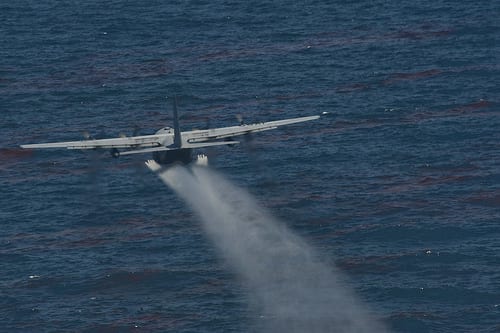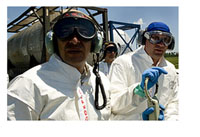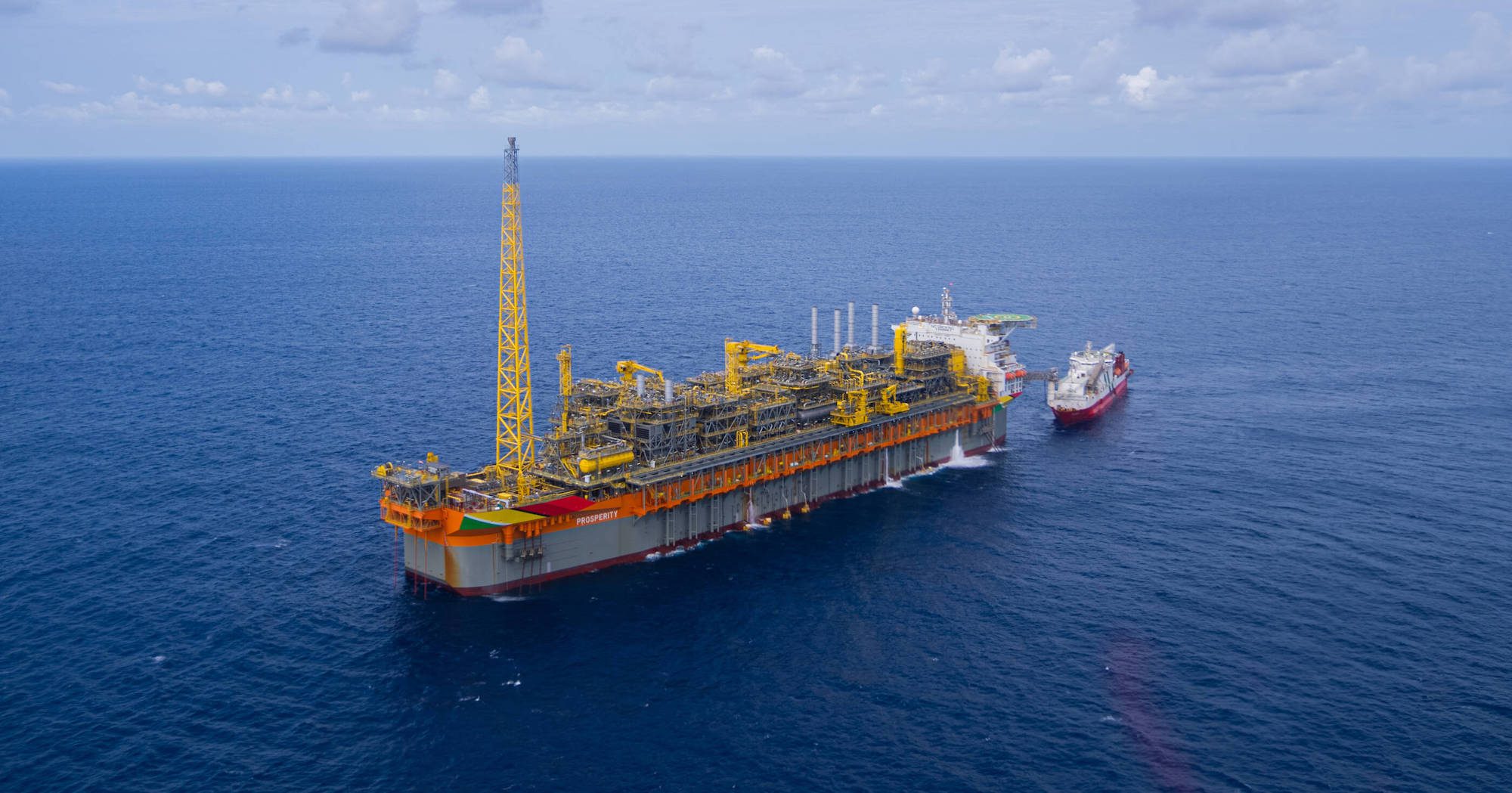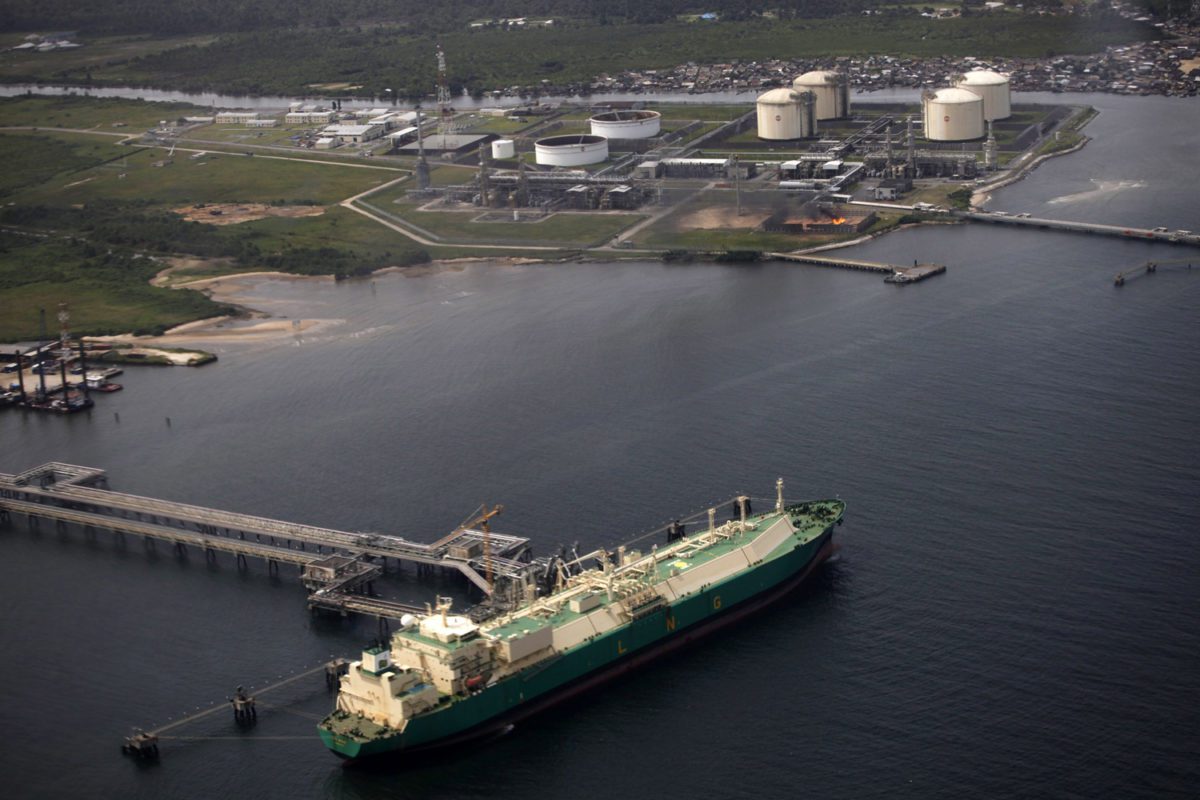
San Luis Obispo – In exclusive interviews gCaptain has learned that critical deliveries of fresh water have been delayed to oil rigs drilling relief wells in the Gulf Of Mexico. As a result the rigs have been ordered to use their watermakers despite the high levels of of chemical dispersants being injected at the wellhead directly below them.
The rig’s watermakers take salt water from under the rig’s hulls and, by a process of reverse osmosis or evaporation, remove the salt. This water is then sent to potable water tanks and distributed to water fountains, showers and galley sinks throughout the vessels. “The entire rig crew is washing, drinking and eating Corexit”, said a rig worker that wishes to remain anonymous.
Corexit, the chemical used in large quantities by BP to disperse the oil spilling into the gulf, is also being sprayed by boats and government airplanes in close proximity to dozens of other vessels working to help BP plug the spill and it remains unclear the exact number of vessels that are running out of clean water.
Other facts also remain unclear including if it was BP or Transocean that ordered the rigs to use the watermakers and the level of toxins, from both the oil and the dispersants, contained in water the rig workers are being forced to injest. “To my knowledge neither the (rig) engineers or medic have been supplied with test kits that measure the amount of chemicals in our water” said the same source.
gCaptain does know this is a recent problem. At the start of the spill BP transported water in the large tanks of workboats out to the rigs allowing them to shut off their watermakers and isolate themselves from the gulf waters. But in the past two weeks the needs of the rigs have outpaced BP’s ability to supply fresh water.
In a recent article from the NY Times, Erik Fyrwald, CEO of Nalco, makers of Corexit, states: “This is a new approach. Our belief is, because it is a new approach, it needs to be done with a lot of testing to make sure there are no unfavorable impacts, and we encourage that.” But that testing has not yet been completed.
 In addition to the injection of tainted water, rig workers have been given badges to measure the amount of Benzene, a carcinogenic naturally occurring in oil, they are exposed to. What they have not been given is special masks or breathing air systems to work in dangerous environments. This is despite the fact that BP and Transocean both have extensive experience drilling wells containing H2S, a deadly gas that requires respiratory precautions.
In addition to the injection of tainted water, rig workers have been given badges to measure the amount of Benzene, a carcinogenic naturally occurring in oil, they are exposed to. What they have not been given is special masks or breathing air systems to work in dangerous environments. This is despite the fact that BP and Transocean both have extensive experience drilling wells containing H2S, a deadly gas that requires respiratory precautions.
Among the concerns with using Corexit are its high levels of Glycol Ether, a substance that in sufficient quantities can cause anemia, mild intoxication and negative effects to the male and female reproductive systems.
Steve Gordon, an attorney representing mariners effected by the incident told gCaptain “The relief well workers are at serious risk. If any are feeling ill or have respiratory problems it’s important to get off the rig and see a doctor where they can get proper treatment and testing.” But this is hard advice for mariners that worry about the company’s willingness to medivac them for minor testing. Others worry that, without baseline blood tests, the companies involved can blame high benzene and chemical levels on previous employment in the petroleum industry.
While solutions do exist for concerned workers, including private medivac insurance which assures you’ll get a helicopter off the rig regardless of company policy, and limiting intake to bottle water and packaged foods, alternative options for showering and breathing are not available. (See the MSDS sheets of Corexit for additional precautions.)
The effects of this information may be severe to both the environment and BP’s bottom line. “The only solution I see is to send the rigs to clean water and completely rinse out the potable water tanks and pipes.” said one former marine engineer. But, with the drilling of relief wells already underway, stopping the jobs to clean tanks would add weeks to the scheduled completion of the relief well in August.
UPDATE: Sources in Port Fouchon, LA tell gCaptain there is no shortage of water in the port. The source also says there seems to be plenty of workboats, the vessels capable of carrying fresh water out to the rigs, around due to the fact that drilling is currently shut down. Further he understands that BP has picked up a few extra vessels at unbelievable rates.
The most probable cause of the water delivery delays is logistics, which BP has been struggling with due, in part, to the high number of vessels it has working on the spill.
We have also learned that the other oil majors operating in the area are not assisting BP with clean up areas. “We’re just sitting idle waiting on orders, and getting a little maintenance done” said one workboat captain.
With all oil companies interested in getting the gulf re-opened for drilling, it is very surprising to gCaptain that they are not assisting BP with the clean-up efforts.

 Join The Club
Join The Club












